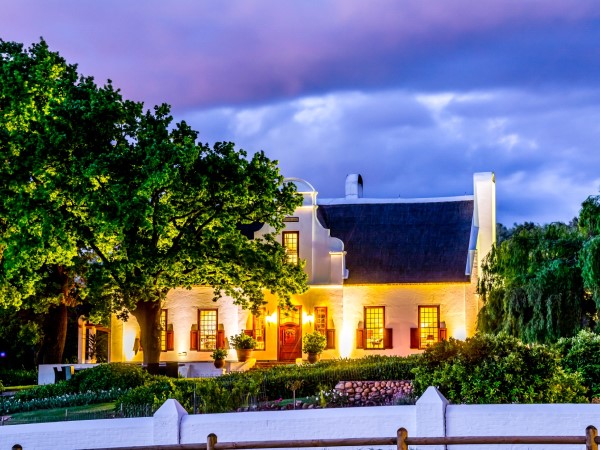South Africa is not only renowned for its breathtaking landscapes and diverse wildlife, but also for being home to some of the world's most spectacular vineyard estates which have not only produced award-winning wines but have also become attractive investment opportunities.
The Allure of South African Vineyard Estates
South African vineyard estates are more than just investments; they are experiences and offer an inimitable lifestyle. With a history of winemaking dating back centuries, these estates have perfected the art of producing fine wines in picturesque settings.
Here are some reasons why investors are drawn to these properties:
- Scenic Beauty: South African vineyard estates are often situated in breathtaking locations, from the rolling hills of Stellenbosch to the picturesque landscapes of Franschhoek and the historic charm of Constantia. Owning a piece of this natural beauty is an attractive proposition.
- World-Class Wines: South African wines have been gaining international recognition for their quality and diversity. By investing in a vineyard estate, you have the opportunity to produce and market your own world-class wines, adding a touch of prestige to your portfolio.
- Tourism Appeal: Wine tourism is a growing trend in South Africa, attracting visitors from around the globe. Many vineyard estates offer wine-tasting experiences, fine dining, and luxurious accommodations, creating additional income streams for investors.
- Cultural Richness: These estates often come with a rich history, reflecting the heritage of the region. Owning a vineyard estate means becoming a custodian of this cultural legacy.

Investment Returns and Potential
Investing in South African vineyard estates can yield substantial returns, but like any investment, it comes with its unique set of factors and risks.
Here's a closer look at the potential short and long-term returns and considerations:
- Wine Production: One of the primary income streams for vineyard estates is wine production. High-quality wines can command premium prices both locally and internationally. However, it's essential to understand that vineyards require ongoing care and maintenance, and returns may not be immediate.
- Tourism Revenue: As mentioned earlier, wine tourism can generate significant income for vineyard estate owners. Tourists often purchase wines, dine at estate restaurants, and stay in on-site accommodations, contributing to revenue.
- Land Appreciation: South African vineyard estates are typically located in prime wine-producing regions. Over time, the value of the land itself can appreciate, making it a potential long-term investment.
- Brand Development: Successfully marketing and branding your estate's wines can lead to increased demand and higher prices, contributing to returns.
- Diversification: Investing in a vineyard estate provides diversification in your investment portfolio, potentially shielding you from the volatility of other assets.
Unique Factors to Consider
While South African vineyard estates offer promising investment opportunities, several unique factors should be taken into consideration when planning to purchase such a property:
- Climate and Weather: The success of wine production is heavily dependent on climate conditions. Droughts, excessive rain, or temperature extremes can impact yields. Understanding the local climate patterns is crucial.
- Vineyard Management: Vineyards require skilled management, including pruning, harvesting, and pest control. Having a reliable team or contracting professional vineyard management services is essential.
- Regulatory Compliance: The wine industry in South Africa is subject to regulations and compliance standards. Ensuring your estate meets these requirements is vital for successful operations.
- Market Trends: Staying informed about market trends and consumer preferences in the wine industry can help you make informed decisions about what varietals to produce and how to market them.
- Competition: The South African wine industry is competitive, with many established producers. It's essential to differentiate your estate through branding, quality, and unique offerings.
Lifestyle Farms
If full-scale farming is too daunting or too large a time commitment, then a lifestyle farm could be the perfect solution.
Unlike expansive commercial farms which are a full-time occupation and require long hours of hard work and a large labour force, lifestyle farms are small in comparison and, by their very nature, require far less work and fewer employees.
Often referred to as small holdings, they are usually between one and five hectares which is a manageable size, allowing one to indulge one’s passion on apart-time basis, whether it be raising specialised animals, growing organic heritage vegetables or producing a boutique wine.
Many of these properties also have additional income streams like guest accommodation, a small shop for selling the produce or a function venue for conferences and weddings.
Investing in South African vineyard estates offers a wonderful lifestyle and financial opportunity and, while the journey may not be without challenges, the rewards can be significant.
Whether you're passionate about wine, seeking diversification in your investment portfolio, or simply drawn to the idea of owning a piece of South African paradise, vineyard estates in the wine heartlands of South Africa are worth considering.
As the sun sets over the rolling vineyards and the aroma of aged oak barrels fills the air, it's not just wine that you'll be savouring but also the fruits of a wise and rewarding investment.

Comments